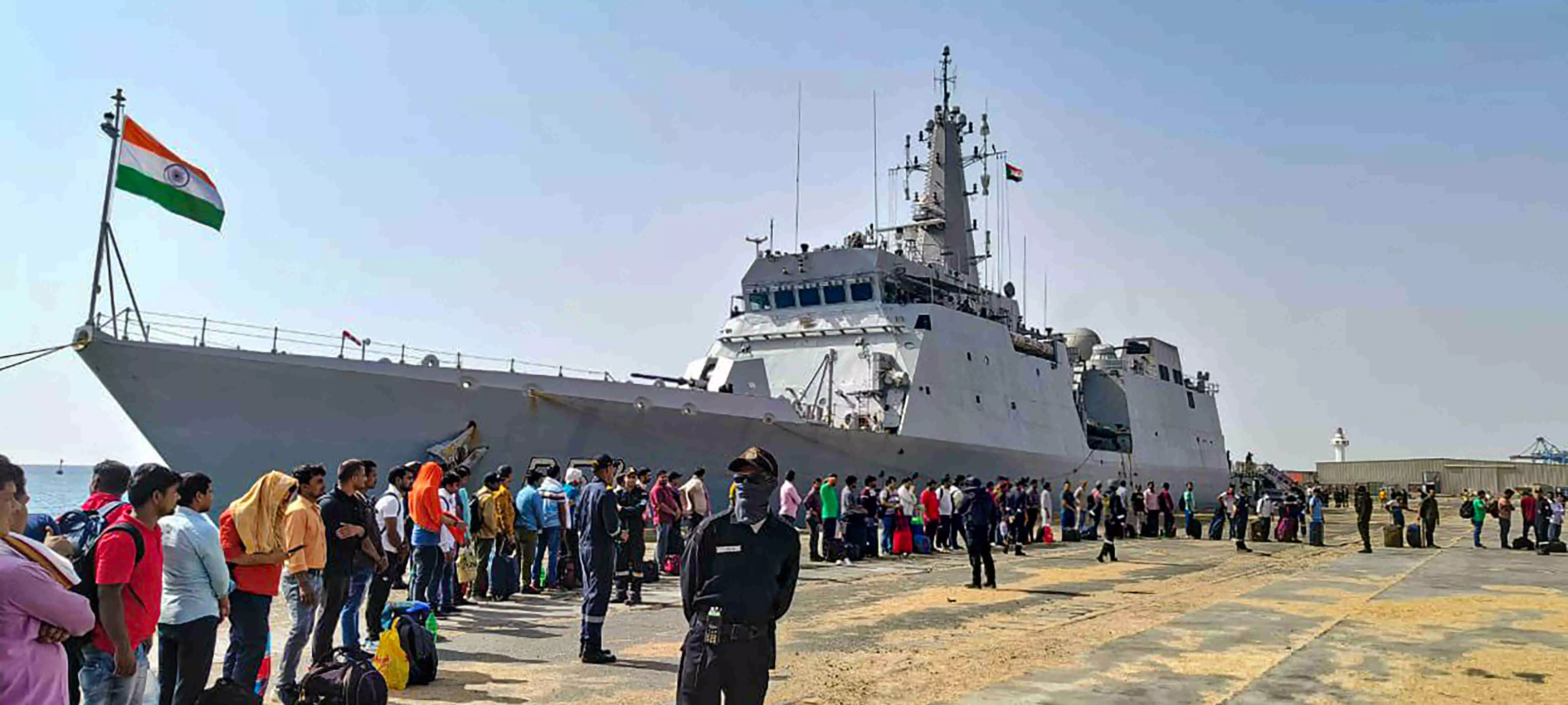Commendable efforts

The fierce infighting between Sudan’s army and Rapid Support Forces (RSF) — a paramilitary force — has not just lent further blows to the already battered Sudanese economy and shrouded the country’s path to civilian governance, but also imperiled the lives of foreign residents, including over 3,000 Indian nationals. The Indian government, through active collaboration with friendly nations, has managed to rescue more than 670 Indians stranded in the conflict-ridden nation, but the challenges ahead are more profound. The fact remains that, still, the lives of thousands of Indian nationals stand at risk, and with the end of the 72-hour ceasefire, the situation will start getting tougher for them. Apparently, the conflict can also lead to prolongation of the wait of Sudanese people for a transition to democratic government. The quest for civilian governance began in 2019, after the military overthrew Omar al-Basir. The incident was followed by the formation of the Sovereignty Council — consisting of military and civilian representatives — which was expected to lead the pathway for elections in 2023, with Abdalla Hamdok as the Prime Minister. In 2021, however, Hamdok was overthrown in yet another coup, bringing the military to the helm of affairs. The timeline for transition to democracy, however, was kept intact. The ongoing conflict has its root in the discord between the two generals — Lt Gen Abdel Fattah al-Burhan and Mohamed Hamdan Dagalo — who came to lead the temporary military establishment after the 2021 coup. More specifically, Burhan-led army and Dagalo-backed RSF are fighting to gain control over the military installations. Whosoever ends up with greater control will effectively have greater say in governance. Notably, RSF has repeatedly come under criticism for human right abuses and even mass murders. While Burhan wants to merge the RSF with the army in a couple of years, Dagalo seeks to delay the process. The genesis of the problem provides some insight into the nature, intensity and durability of the conflict. Given the fact that power is something that is very reluctantly conceded, one is doubtful of the intent of both the military factions to resolve the issue smoothly. Even during the ceasefire, the factions reportedly kept having skirmishes, leaving the rescue process fraught with risks. India’s rescue operation can be roughly said to be consisting of two steps. In the first place, Indian Navy’s frontline ship INS Sumedha has been rescuing Indians from Port Sudan, a relatively safer place in the country. The evacuated persons are then taken to the Saudi city of Jeddah from where they are brought to India on C-130 flights. Reports suggest that the riskiest part of the problem for the stranded Indian nationals has been to reach Port Sudan. It also goes without saying that the rescue operation is currently limited for only those individuals who share geographical proximity with Port Sudan. However, despite the limitations and the fierce nature of infighting between the army and RSF in Sudan, the Indian government’s effort to rescue its nationals deserves acknowledgement. Operation Kaveri falls in line with India’s glorious and consistent record of evacuating its people from conflict-ridden regions — be it the evacuation during the Gulf war or the recent Russia-Ukraine war. What has been truly remarkable is India’s capability to leverage its diplomatic ties with friendly nations for this purpose. In the present case, apart from Saudi Arabia via which stranded nationals are being evacuated, India has also held regular deliberations with the UAE, Egypt, the US and the UK. Apart from this, Union External Affairs Minister S Jaishankar, on his way to the Caribbean for a scheduled visit, met with the United Nations Secretary General in New York to seek help. All efforts notwithstanding, challenges ahead are more daunting. It will be critically important to trace those who are willing to return to India, and extend them the required help. India should also join other nations to urge the Sudanese military to put an end to the conflict. The aspirations of the people there to live and grow under a democratic rule remain in the realm of uncertainty.



